This step by step diy woodworking project is about a 12×16 pavilion lean to roof plans. This is PART 2 of the 4 post garden pavilion, where I show you how to build the slanted roof. This roof has a 3:12 pitch, but you can adjust it, as well. Take a look over the rest of my woodworking plans, if you want to get more building inspiration.
When buying the lumber, you should select the planks with great care, making sure they are straight and without any visible flaws (cracks, knots, twists, decay). Investing in cedar or other weather resistant lumber is a good idea, as it will pay off on the long run. Use a spirit level to plumb and align the components, before inserting the galvanized screws, otherwise the project won’t have a symmetrical look. If you have all the materials and tools required for the project, you could get the job done in about a day.
Projects made from these plans
Lean to Roof Plans for a 12×16 Pavilion
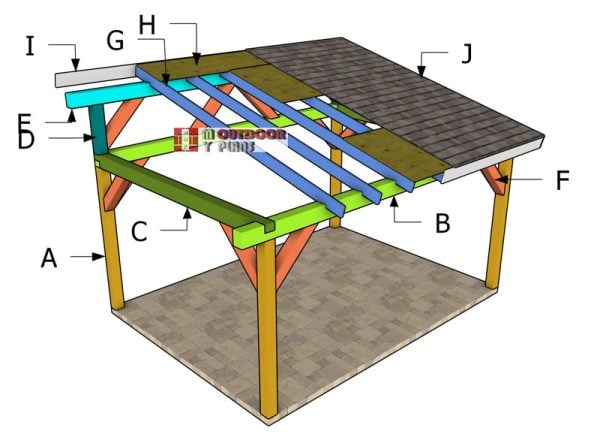
Building-a-12×16-lean-to-pavilion
Cut and Shopping Lists
Tools
![]() Hammer, Tape measure, Framing square, Level
Hammer, Tape measure, Framing square, Level
![]() Miter saw, Drill machinery, Screwdriver, Sander
Miter saw, Drill machinery, Screwdriver, Sander
Time
Related
- PART 1: 12×16 Lean to Pavilion Plans
- PART 2: 12×16 Pavilion Lean to Roof Plans
How to build a 12×16 lean to pavilion roof
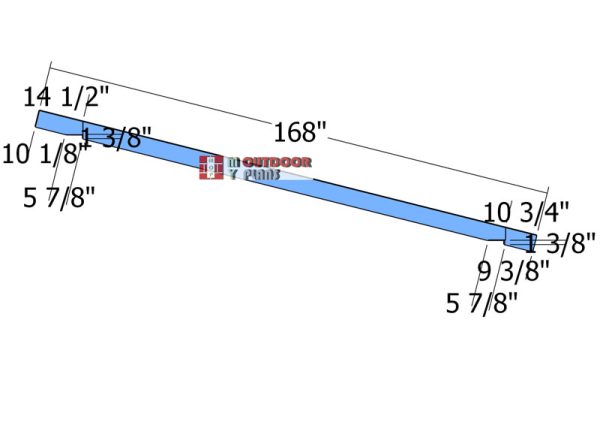
Cutting-the-rafters
Use 2×6 lumber for the rafters. Mark the cut lines to the rafters and then get the job done with a circular saw. Smooth the edges with sandpaper.
We make birdsmouth cuts to rafters to ensure a snug and secure fit over the supporting structure, enhancing stability and distributing weight evenly, crucial for the structural integrity and longevity of the roof.
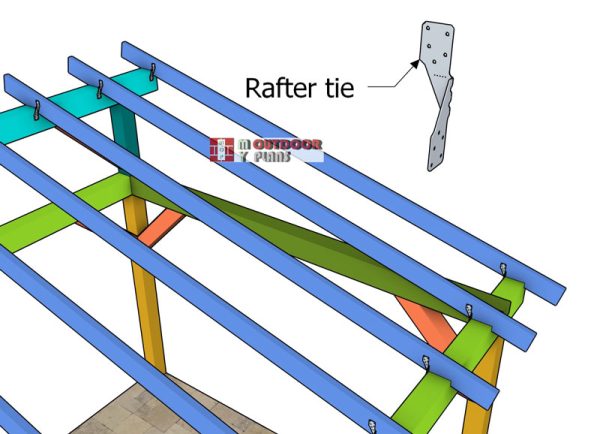
Detail—rafter-ties
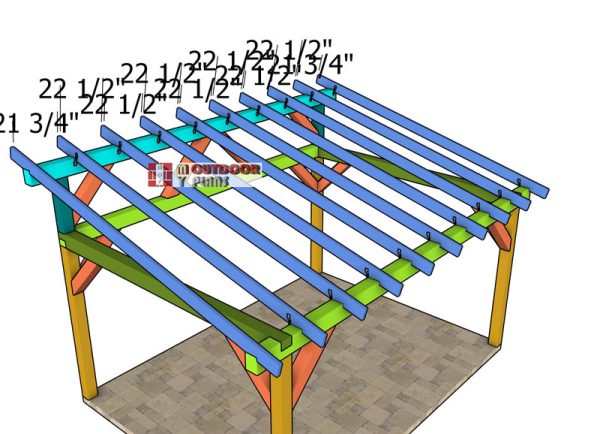
Installing-the-rafters
Fit the rafters to the top of the pavilion, using the information from the diagram. It is important to space the rafters properly (every 24″ on center), otherwise you won’t be able to attach the roofing sheets. Use hurricane rafters ties and 1 1/2″ structural screws, to lock the rafters to the support beams. Use ties at both ends of the rafters.
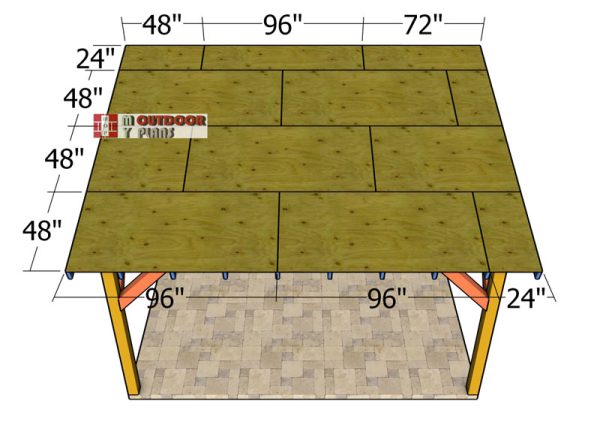
Fitting-the-roof-sheets
Start by positioning the plywood sheets perpendicular to the rafters, ensuring they overhang the edges uniformly for proper water runoff. Secure the plywood to the rafters using 2 1/2″ screws, starting from the bottom and working your way up, and stagger the seams between sheets to enhance stability and reduce potential leaks.
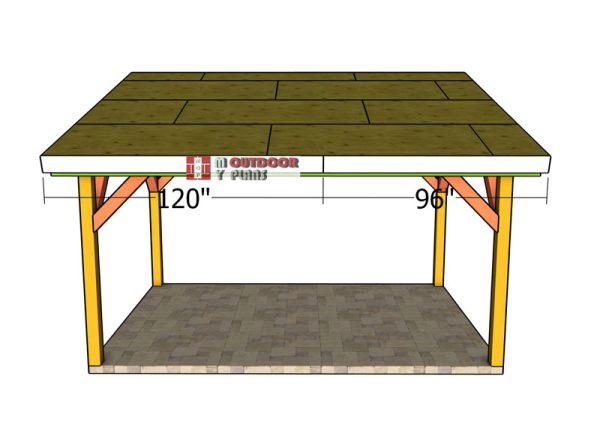
Front-roof-trims
Fit 1×8 trims to the front and back of the pavilion. Align the edges with attention and insert 2″ nails to lock them into place tightly.
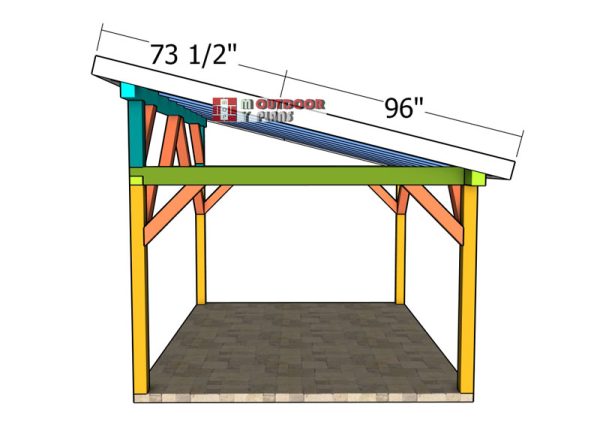
Side-roof-trims
Fit the 1×8 trims to the sides of the pavilion. Make the angle cuts to the trims before locking them into place with 2″ nails.
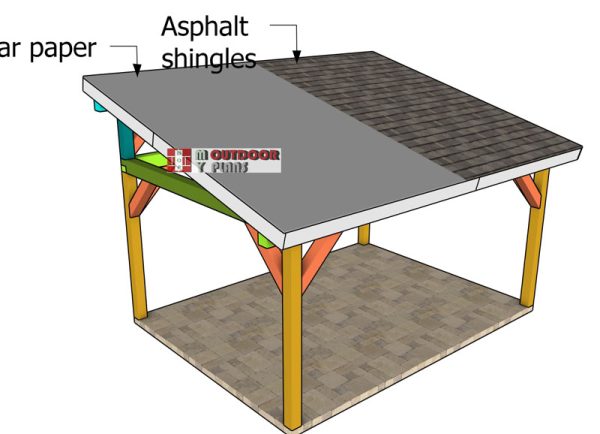
Fitting-the-roofing
To install asphalt shingles on a small lean-to roof, begin by laying down an underlayment and securing drip edge flashing along the eaves. Start shingling from the bottom edge, nailing each shingle in place and staggering joints to prevent water infiltration.
Trim the shingles as needed around obstructions and install ridge caps at the roof ridge, sealing them with roofing cement for added protection. Finally, inspect the roof for any loose shingles or leaks, and apply sealant where necessary to ensure a weather-resistant finish.
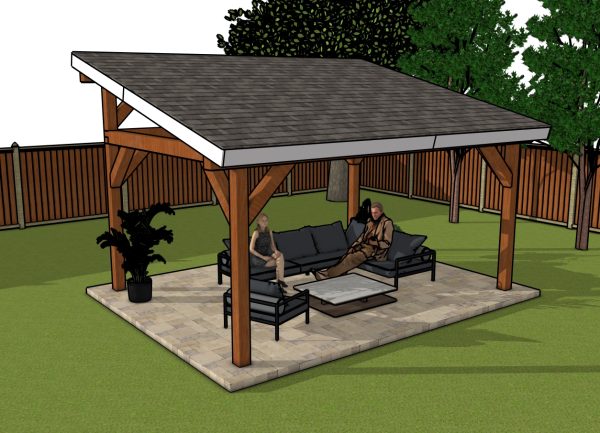
How to build a 12×16 lean to pavilion
Fill the holes with wood putty and let them dry out for a few hours. Smooth the surface with 100-200 grit sandpaper and remove the residues with a damp cloth. Apply a few coats of stain or paint to enhance the look of the pavilion.
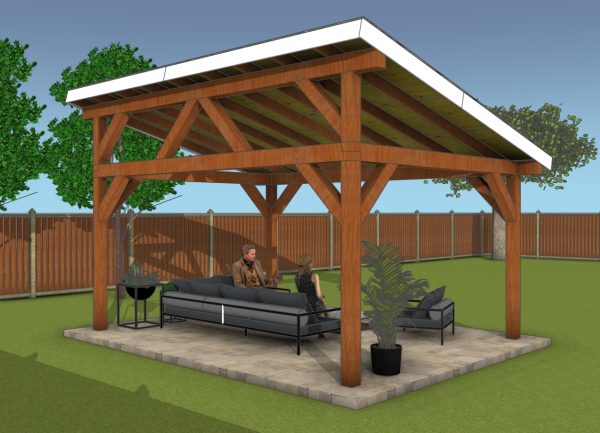
12×16 pavilion – back view
Don’t forget to take a look over PART 1 of the project, so you learn how to build the frame of the 12×16 pavilion. A lean-to pavilion in the garden adds value by providing a charming and practical outdoor retreat, perfect for relaxation, entertainment, and enhancing the overall aesthetic appeal of the landscape.
What I like the most about this pavilion is that you can easily modify the height of the post, so it suits your needs and fits your space. See all my woodworking plans, sorted by category.
This woodworking project was about 12×16 backyard pavilion roof plans. If you want to see more outdoor plans, check out the rest of our step by step projects and follow the instructions to obtain a professional result.





